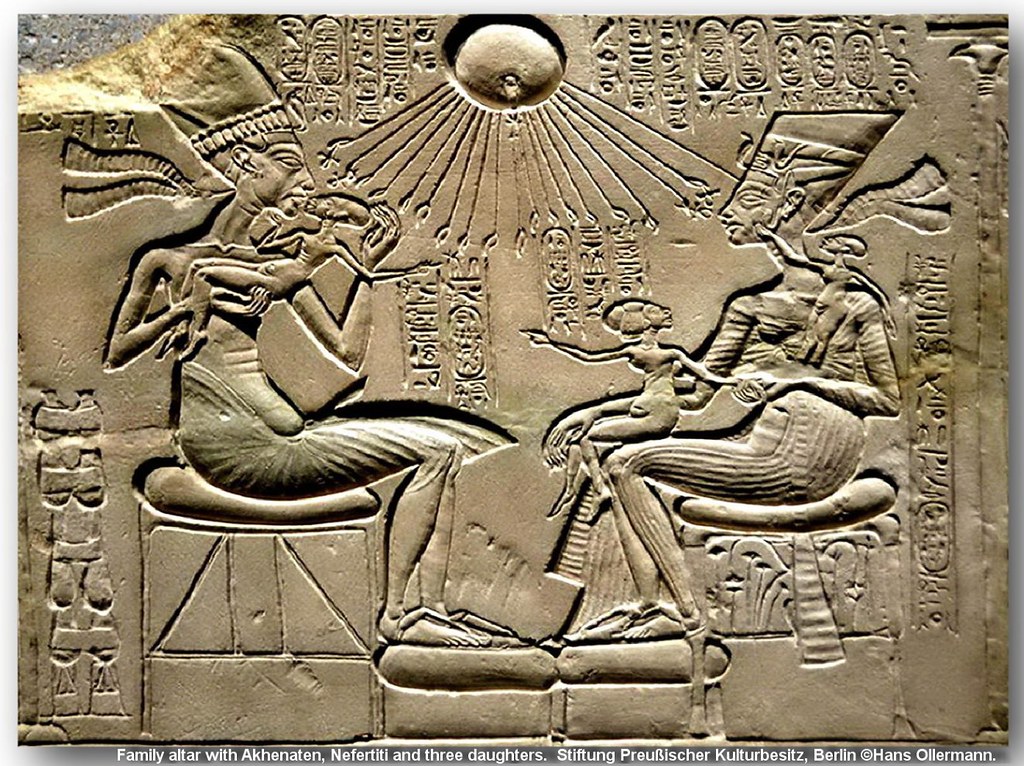SiTU
MUSEUM OF MYSTERIES: a name; what's in a name
Pharaoh
Akhenaton is called a heretic. Why? Because he introduced the concept
of one, universal God, called Aton, the sundisk. He, supported by his
wife Nefertiti, the beautiful, removed in one stroke the complete
matrix of multiple deities. Akhenaton changed his name and ordered a
new capital to be build, Armarna.
The
experiment failed and after the death of the heredical pharaoh,
things got back to normal and Akhenaton's son changed his name from
Tut-Ankh-Aton into Tut-Ankh-Amon. To be the next pharaoh, for a short
time and as the last of this “alien” dynasty.
Alien?
Yes.
Depictions of the famous pharaoh show a distinctive face with a, so
it seems, elongated skull. This proves his extraterrestrial origin.
And he was not alone. His wife Nefertiti and his son Tut are
portraited that way. An extraterrestrial colony?
Then
there must have been many, because elongated and giant skulls
(skeletons) are dug up all over the world. You find them in museums
in Malta, Bolivia and Indonesia.
But
there is more.
There
was a period in our evolution, when plants, fish and animals grew
considerably larger, than the size we know today. Gigantism ruled and
giant-horses, -camels an -mice roamed the earth. The reason why? The
atmospheric conditions, cosmic radiation and earthly energies made
this possible. After 20.000 years the circumstances changed and
mammals, whales and monkeys produced smaller off-spring or went
slowly extinct.
The
existence of human giants is fiercely debated and archeological proof
of giant human skeletons disappears.
But
if the conditions were right for cave-lions and giant deer, why not
for humans. Even the Bible includes giants in this reality. What if
the celestial circumstances are slowly returning, does it mean that
the “Titans” will return?

Geen opmerkingen:
Een reactie posten